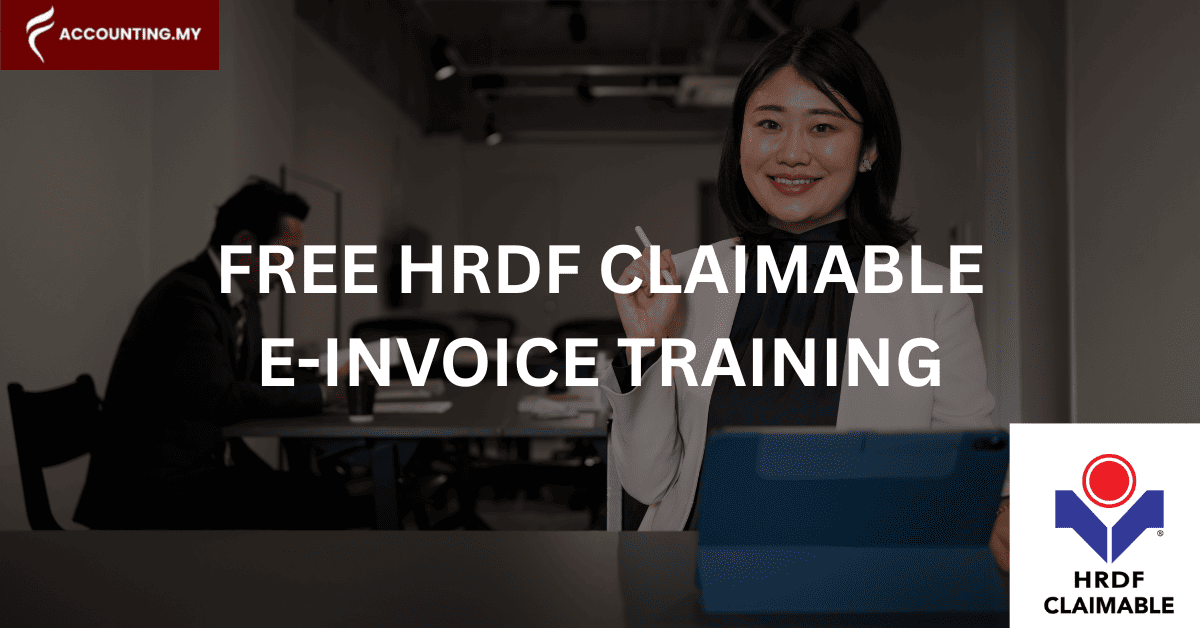
- Accounting.my
- July 1, 2025
- 2:00 am
Why Malaysian SMEs Should Outsource Accounting in 2025

Outsourcing accounting to an accounting firm helps Malaysian SMEs cut costs, stay compliant, and reduce stress.
Table of Contents
ToggleDoing your own accounts is like fixing a leaking pipe with your company laptop nearby, technically doable, but bound to end badly with an awkward conversation with your IT department the next day.
With the upcoming SST expansion set for July, staying on top of tax obligations has become more than just a monthly chore. That’s why many SMEs are turning to outsourced accounting services for peace of mind, predictable costs, and fewer late-night reconciliations.
In this guide, you’ll learn what outsourced accounting covers, how much it costs, and why it may be the smartest move your balance sheet sees this year.
Outsourced vs In-House Accounting: 2025 Comparison
Feature | In-House Accountant | Outsourced Accounting Firm |
Best For | Large companies with complex needs | SMEs, startups, seasonal businesses |
Cost (Monthly) | RM5,000–RM10,000+ | RM500–RM3,000 (package-based) |
Compliance Support | Depends on individual skills | Handled by licensed professionals |
Scalability | Requires new hires | Easy to scale up or down |
Technology | Manual, unless system added | Cloud-based platforms included |
Risk of Error | Higher with limited oversight | Lower with cross-checked systems |
What Are the Challenges of Doing Accounting In-House?
Managing accounts internally might seem practical, but it often leads to missed deadlines, rising costs, and unnecessary stress.
Here are common challenges Malaysian SMEs face when handling accounting themselves:
- Too Much Admin, Not Enough Growth
Owners often wear multiple hats, marketing, operations, and finance. This stretches bandwidth and leads to delays in invoicing, payroll, or tax filing. - Struggling with Compliance Requirements
SSM and LHDN submissions come with tight deadlines. Missing one Form E or SST cycle can trigger penalties. - Lack of Financial Knowledge
Many founders aren’t trained in tax planning or double-entry accounting, increasing the likelihood of mistakes. - High Cost of In-House Talent
Hiring an accountant means paying a salary, EPF, SOCSO, and often investing in expensive software licenses and training. - Difficulties with Changes
Tasks like share transfers, director updates, or preparing board resolutions require legal precision, which internal teams often lack.
“We missed our SST submission last year because no one on the team knew the deadline changed. It cost us RM1,200 in fines.” – Saleh, local events company in PJ
What Does Outsourcing Accounting Actually Do?
Outsourcing means hiring a licensed third-party to manage your financial reporting, compliance, and bookkeeping.
Instead of employing a full-time accountant, you pay a professional firm to manage:
- Monthly bookkeeping
- Payroll processing (PCB, EPF, SOCSO, EIS)
- SST registration and filing
- LHDN corporate tax and CP204 estimates
- Year-end financial statements and audit prep
Many outsourced firms in Malaysia use accounting software like SQL, Xero, AutoCount, and Financio, allowing you to access financials from any device.
How Much Does It Cost to Outsource Accounting in Malaysia?
Outsourced accounting starts from RM500/month for basic services. Naturally, pricing depends on transaction volume, number of employees, and whether SST or audit support is included.
Package Type | What’s Included | Estimated Cost (RM) |
Starter | Bookkeeping, SST submission | 500–800 |
Payroll + Bookkeeping | Staff payslips, PCB, EPF, full reports | 800–1,500 |
Full Compliance | All filings, tax planning, audit support | 1,500–3,000 |
Some firms offer custom plans, quarterly payments, or one-off cleanup jobs for SMEs behind on records.
Why Is Outsourced Accounting a Better Fit for SMEs in 2025?
Because it saves money, prevents mistakes, and helps you stay compliant with the latest tax laws.
Malaysian SMEs are facing new challenges in 2025:
- Revised SST rules: Now applied to digital and retail services (hair salons) and some exempt categories
- Tightened LHDN compliance: Heavier penalties for errors and late filings
- Staffing shortages: In-house finance roles are harder to fill
In this climate, outsourcing gives SMEs access to licensed accountants without the full-time cost. Firms use automated systems to reduce human error and ensure deadlines are met, even during busy periods.
What Are the Benefits of Outsourcing Accounting in Malaysia?
Outsourced accounting gives SMEs access to professional-grade support without the overheads.
1. Cost Savings Without Sacrificing Expertise
Hiring full-time can cost RM5,000–10,000/month. Outsourcing starts at RM500/month. That’s up to 90% in cost savings.
“68% of SMEs surveyed by MYFin in 2024 reduced costs by over 40% within the first 6 months of outsourcing.”
2. Better Compliance with LHDN, SSM & SST
Outsourced firms track all submission deadlines and new rules. You avoid late penalties from missing:
- SST deadlines
- Monthly PCB deductions
- EA/Form E submissions
- Annual SSM returns
3. Real-Time Visibility with Cloud Tools
Access live dashboards, download cash flow reports, and export ledgers anytime from SQL, Xero, or AutoCount.
Example: A Klang-based logistics SME uses SQL to track revenue daily and auto-syncs tax data every month.
4. More Time to Focus on Growth
With someone else handling your ledgers and tax, you can focus on:
- Growing revenue
- Improving customer service
- Streamlining operations
5. Scalable, Modular Services
Need audit help but not payroll? Need SST but not bookkeeping? Packages are flexible—add or remove as you grow.
6. Reduced Risk of Errors or Audits
Outsourced firms follow internal review processes and use automation to reduce human mistakes.
7. Peace of Mind from Licensed Pros
Many are certified by MIA (Malaysian Institute of Accountants) and CTIM (Chartered Tax Institute of Malaysia). Your finances are in expert hands.
How Does Outsourcing Improve Compliance?
Professional firms manage all statutory and tax filings so you don’t miss a thing.
What they handle:
- Monthly PCB deductions & e-submission
- SST registration, tracking & filing
- Year-end Form E, EA, and employer declarations
- Income tax estimate submissions (CP204)
“Most of our SME clients switched to us after getting LHDN letters due to misreporting,” — Mr. Lim, senior consultant, Accounting.My.
When Should You Consider Outsourcing Accounting?
If you answer “yes” to two or more of the following, outsourcing might be your best next move.
Situation | Recommendation |
Business under RM500K annual revenue | Outsourced starter plan |
>10 employees or monthly payroll stress | Full-service outsourced plan |
Missed tax/SST deadlines | Outsourced catch-up plan |
In-house team but lack tax expertise | Hybrid/advisory firm option |
How to Choose the Right Outsourced Accounting Service
Not all providers are created equal and a quick Google search of “accounting services for small businesses” will see a plethora of firms all pop up claiming to be the “best”. Here’s what to look for before signing any engagement letter.
1. Verify Their Licensing & Compliance Credentials
- Ensure the firm is registered with the Malaysian Institute of Accountants (MIA) or the Chartered Tax Institute of Malaysia (CTIM)
- Request their registration number and confirm it on the official directories
- Ask if their team undergoes regular CPD (Continuous Professional Development) training
2. Evaluate Industry Fit & SME Experience
- Have they worked with businesses like yours (logistics, F&B, SaaS)?
- Do they understand the nuances of SME cash flow, SST exemptions, or compliance pain points?
- Request real case studies, reviews, or client testimonials
Firms that already serve your industry can give better advice, not just better reporting.
3. Understand the Scope of Their Packages
- Are services modular (à la carte) or only offered as fixed bundles?
- Look for transparency: What’s included in the monthly fee? Are tax estimates, audit prep, or SST advisory extra?
- Do they offer tiered plans that scale as your business grows?
4. Check Communication & Support Responsiveness
- Ask how quickly they respond to queries, some offer same-day WhatsApp replies, others take days
- Will you have a dedicated account manager, or will you deal with a rotating support pool?
- Can they assist in urgent cases (SST audit or LHDN letter) with minimal delay?
5. Assess Their Data Security & Technology Stack
- Ensure they use cloud-based platforms like Xero, SQL, AutoCount, or Financio with end-to-end encryption
- Confirm they comply with Malaysia’s PDPA (Personal Data Protection Act)
- Ask how your data is backed up and whether there’s a client dashboard or document portal
If you’re not sure what to ask during your first consultation, we’ve already done the heavy lifting for you.
Read: 13 Questions To Ask Your Accountant For Small Business
This companion blog walks you through the most important things to ask, so you can avoid red flags and pick a provider that actually adds value.
The Freedom of Outsourcing Accounting in Malaysia
At Accounting.my, we’ve spent over 20 years helping Malaysian SMEs, from manufacturing operations to established retail chains and get their finances in order without the cost and complexity of building an in-house team.
Outsourcing isn’t just a trend, it’s affordable. It’s adaptable and it’s accountable. It’s a practical solution for businesses that want to stay lean, compliant, and of course, not get penalised by LHDN or authorities.
Ready to take control without doing it all yourself? Let us show you how.
Frequently Asked Questions About Outsourced Accounting in Malaysia
Hiring a third-party firm to handle your bookkeeping, payroll, and taxes instead of doing it in-house.
It ranges from RM500–RM3,000/month depending on services needed.
Yes, and many licensed firms offer fully compliant services based on LHDN guidelines.
Yes, many SMEs outsource payroll only or hire for year-end tax and audit support.
No, you still approve reports and payments, firms just handle the grunt work.
Common tools include Xero, SQL, AutoCount, and Financio, all cloud-based for security and real-time access.
Popular Post


How to Apply for a Food Handling Certificate in Malaysia

Best 10 KSL Hair Salon: Where All Locals & Singaporeans Go

Enterprise vs Sdn Bhd: What Malaysian Owners Must Know

Sick Leave in Malaysia: Rules, Rights & HR Guide

Contract of Service vs Contract for Service in Malaysia Explained

Malaysia first AI bank – Ryt Bank Launches 18 August 2025

We Offer FREE HRDF Claimable E-Invoice Training (If You Contribute)

Best 10 SEO agency in Malaysia


